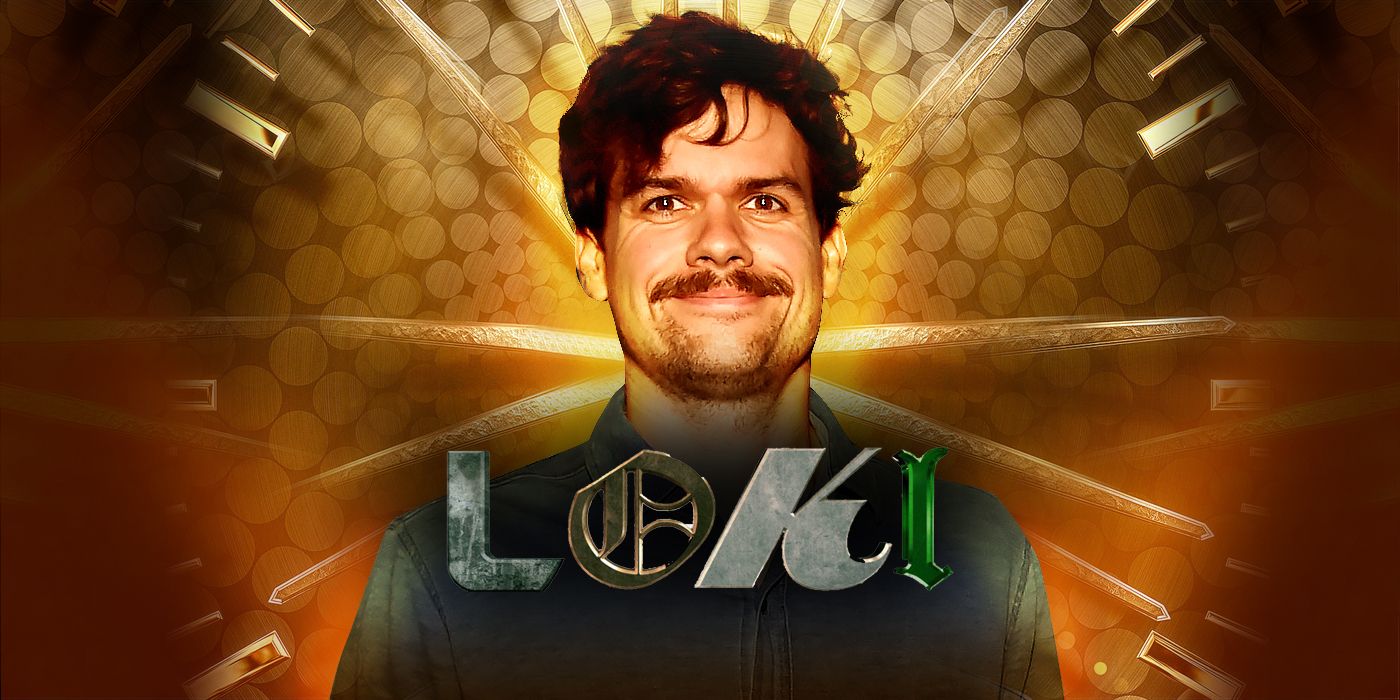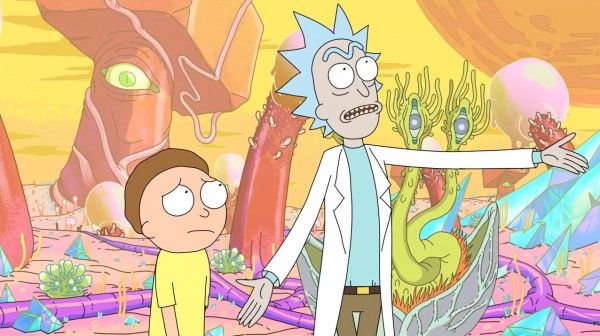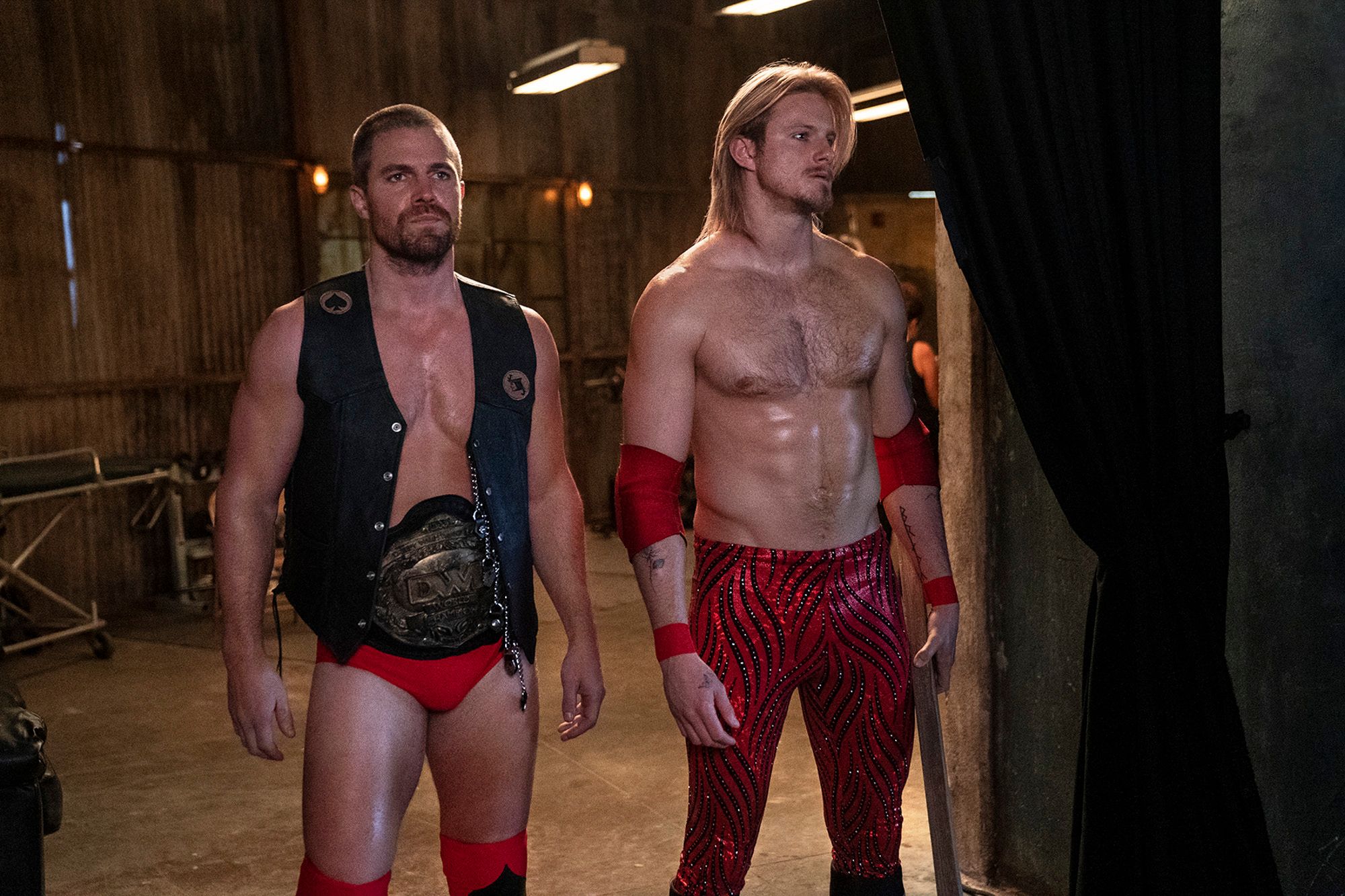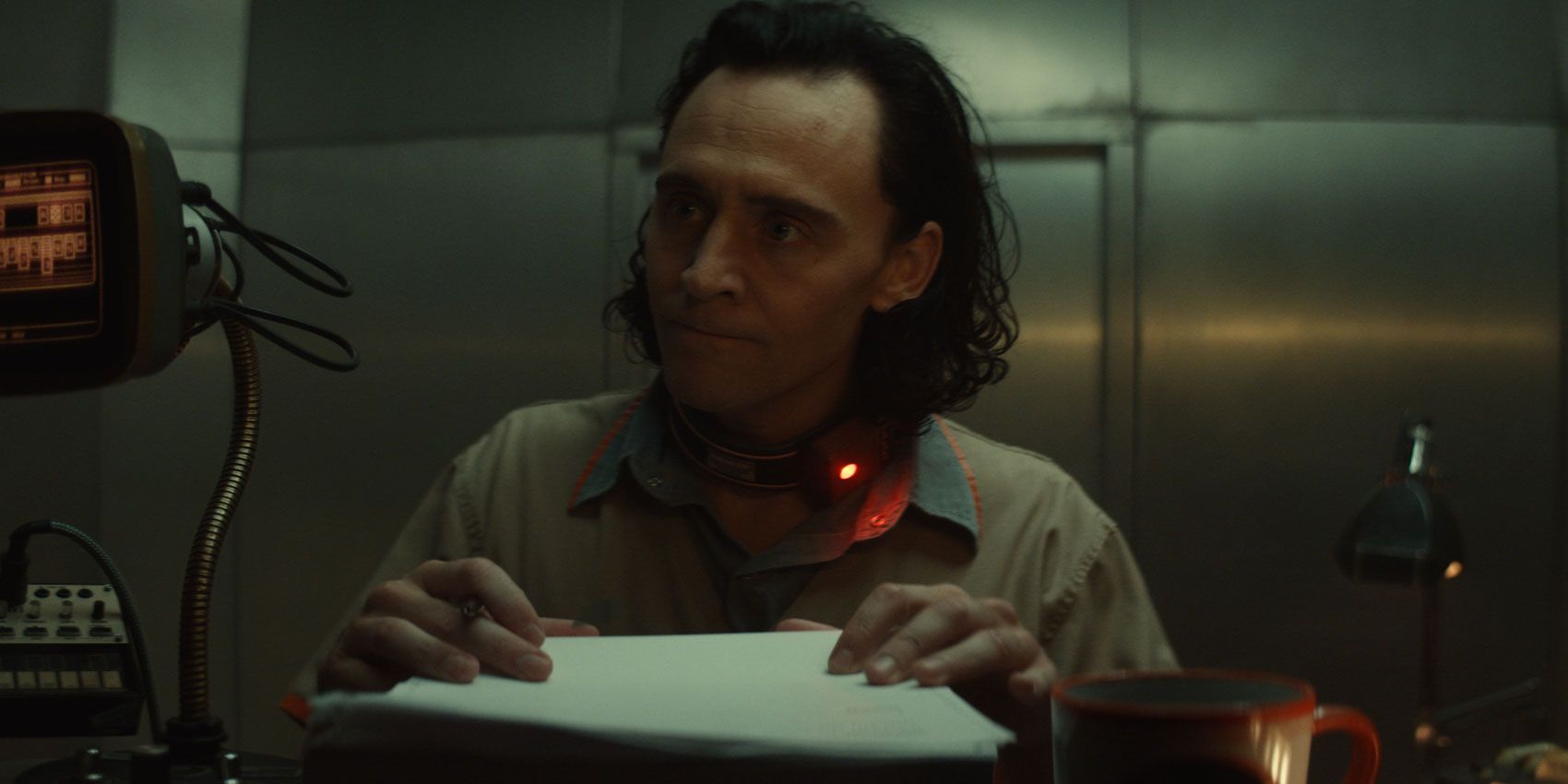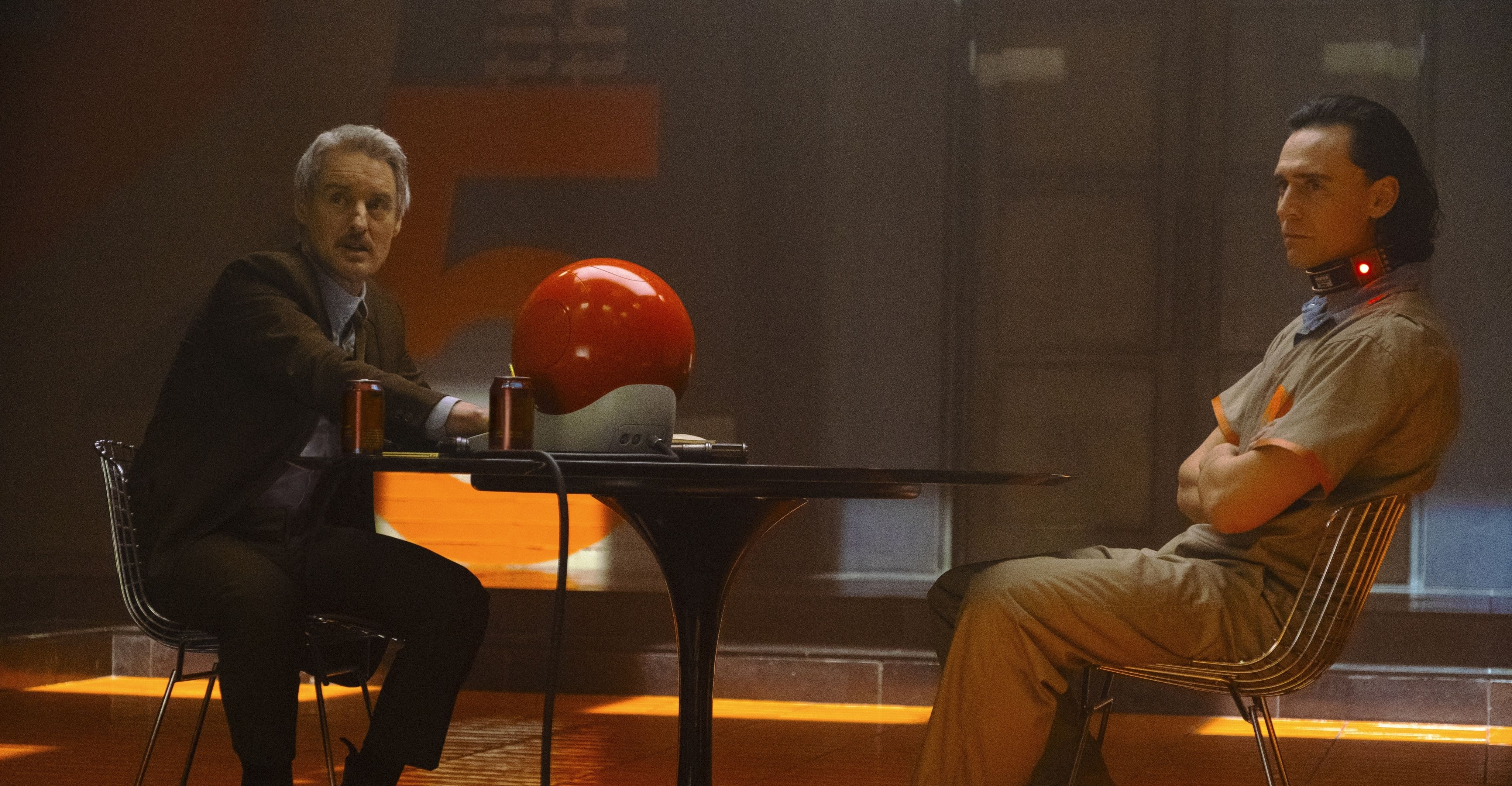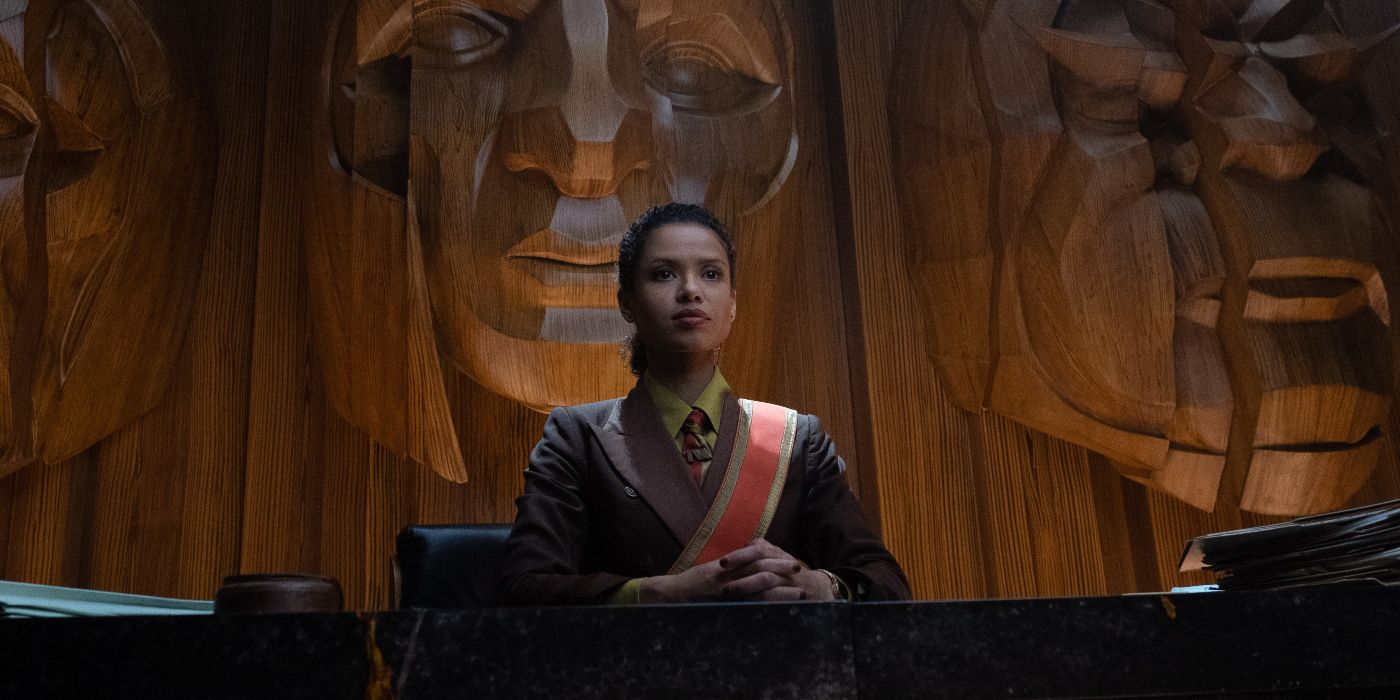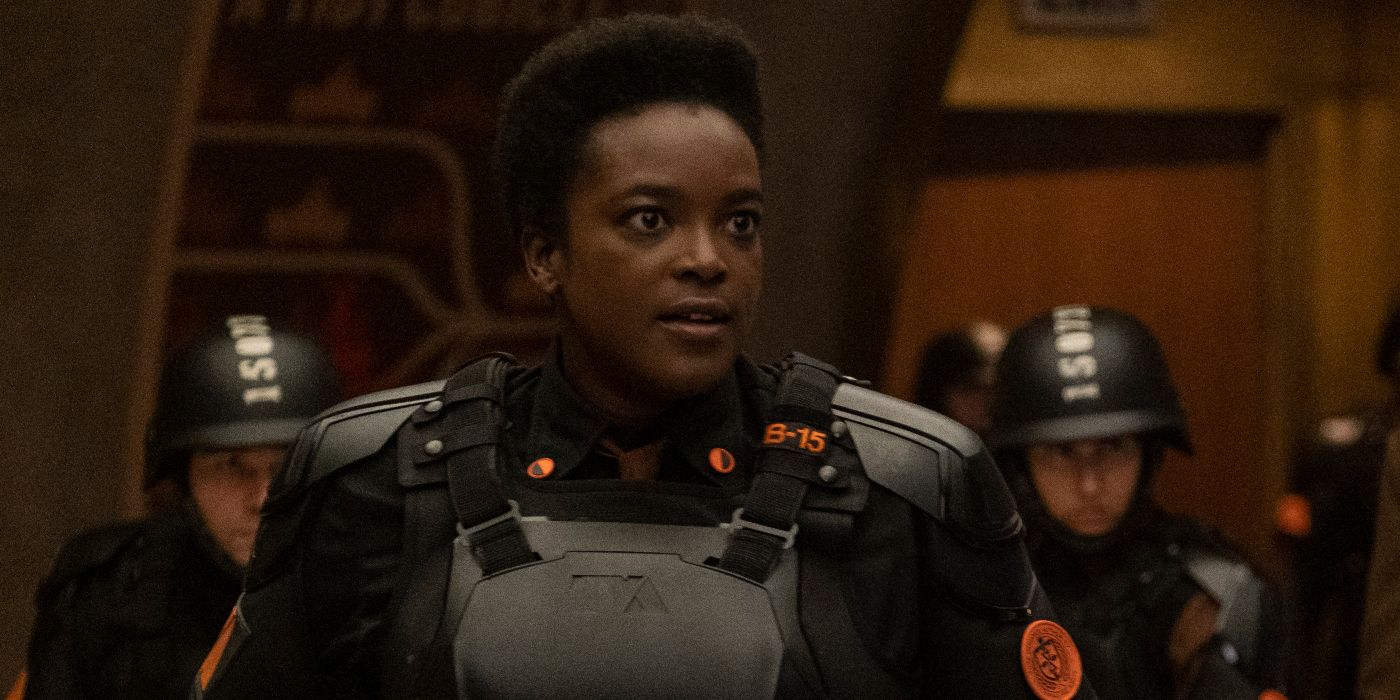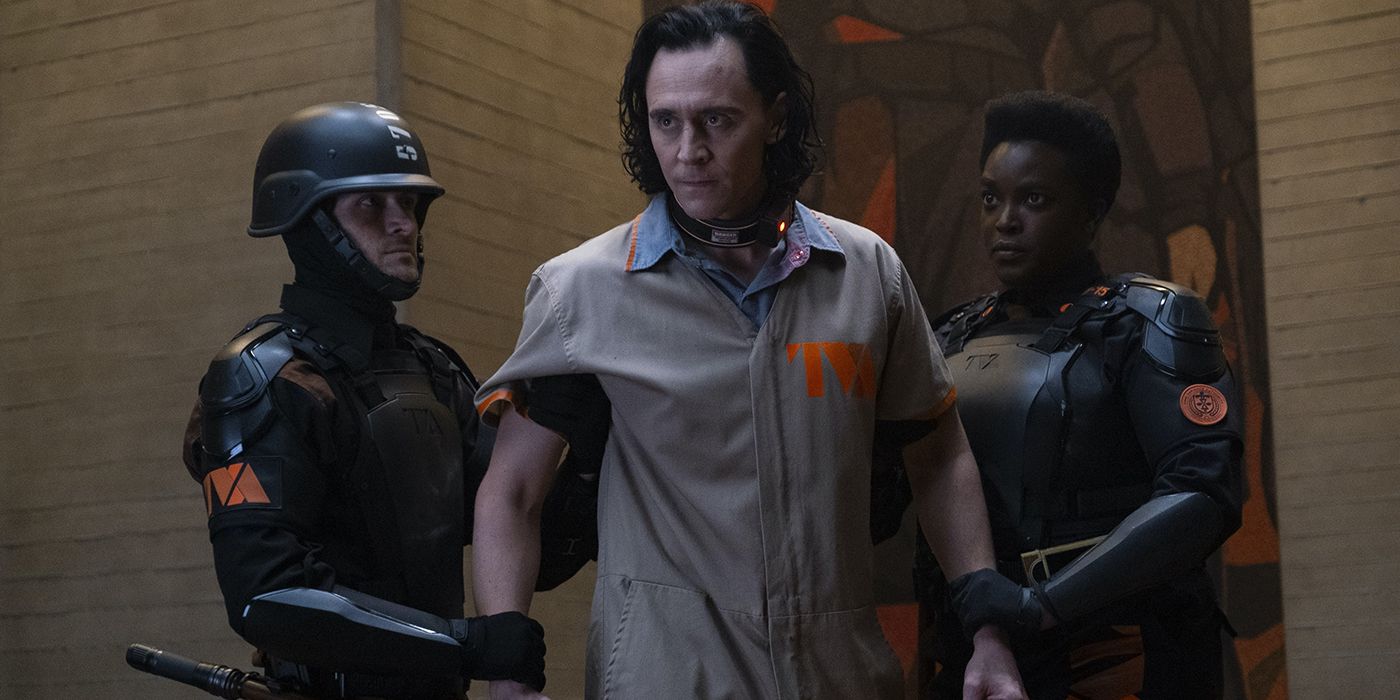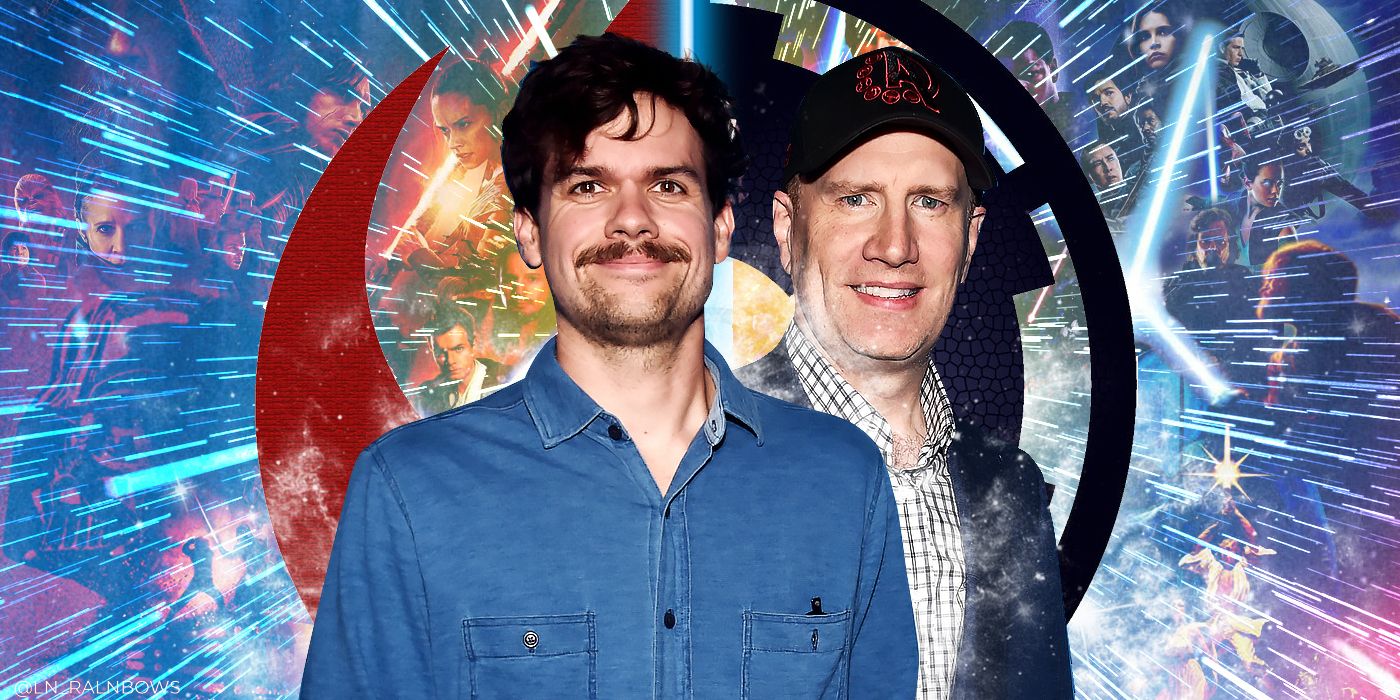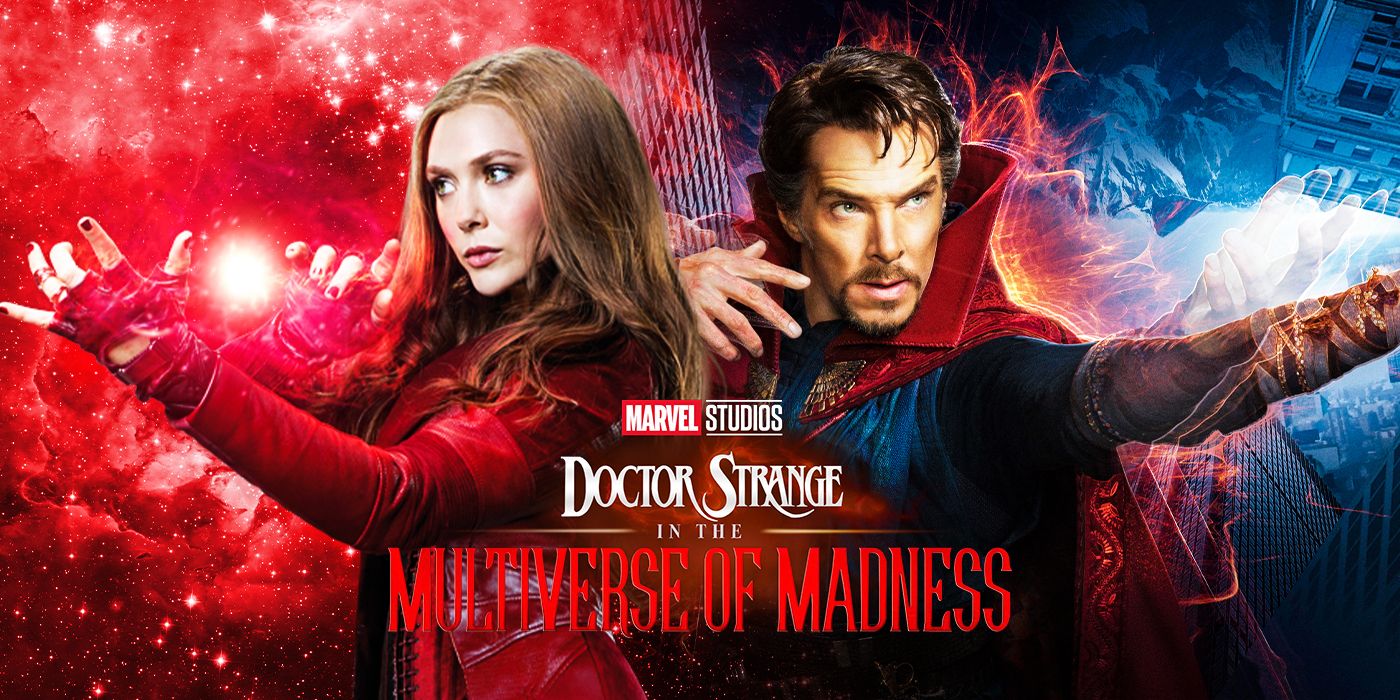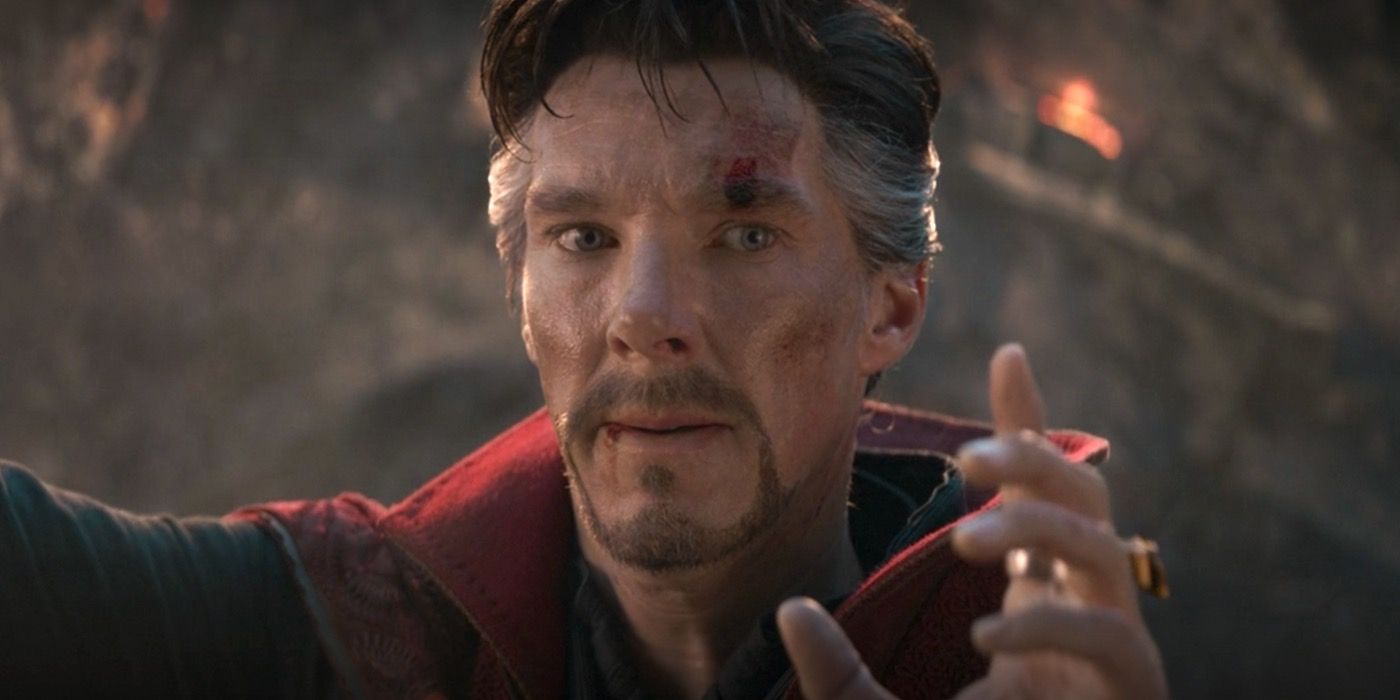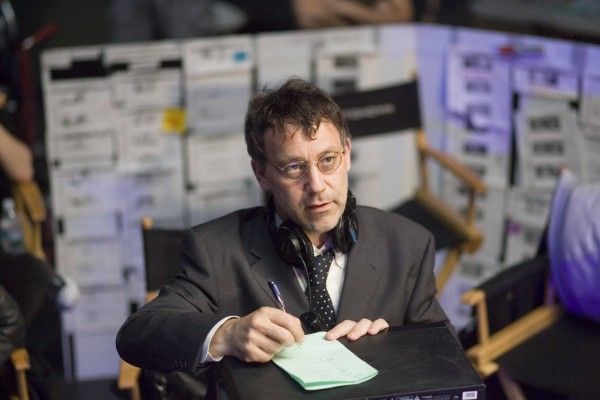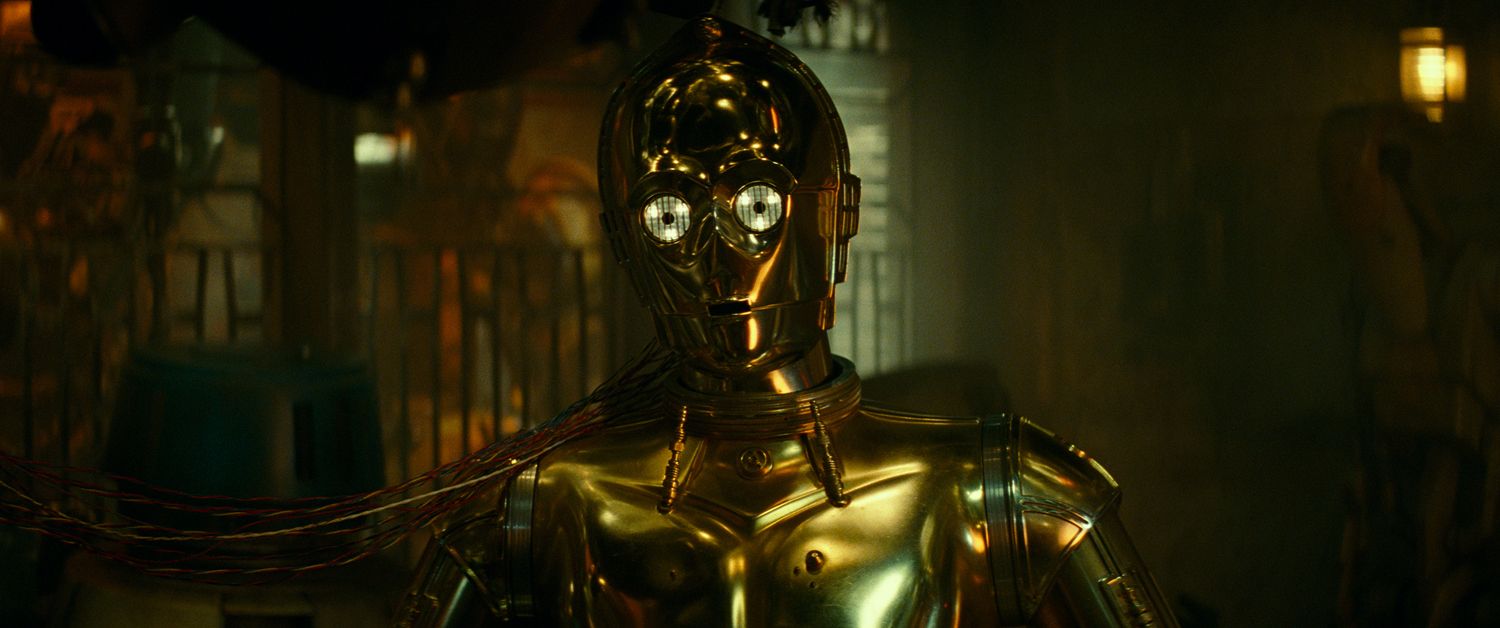If you watched the Loki series premiere on Disney+, you might have noticed Michael Waldron’s name when it said written by in the credits. And while you might not yet know Waldron’s name, that’s about to change. In addition to having his fingerprints all over the story of Loki, Marvel Studios President Kevin Feige approached him after finishing Loki and asked him if he wanted to write the Doctor Strange sequel, which means Feige must have been extremely impressed with Waldron’s work and wanted him to stay in the family. I also should mention one other thing, at some point while working on Doctor Strange in the Multiverse of Madness, Feige asked him to write the Star Wars movie that Feige is producing at Lucasfilm.
Like I said, you’re probably going to learn his name.
You’re probably asking where did this guy come from that he could enchant Kevin Feige to let him have the keys to Loki without previously helming another TV series. The fact is, he actually did work on a TV series before Loki, it just hasn’t come out yet. Back in 2016, he created the wrestling series Heels for Starz and he ran the writers room. But when they couldn’t cast the lead actors, the show didn’t move forward. Since he had previously interned at Rick and Morty in the first season and established a great relationship with Dan Harmon (after starting a company softball team to get noticed), he went back to Rick and Morty in Season 4 as a writer to get more experience.
While working on the show he was asking his agents and manager how he could get a job at Marvel, or work on Star Wars, and they told him he needed to write a movie because he had only worked on TV. So he wrote a time travel action rom-com called The Worst Guy of All Time and the Girl Who Came to Kill Him that landed on The Black List. At some point the script made its way to Marvel as they were meeting people for Loki and that got him in the door to pitch and that pitch got him the job.
So if you’re out there wondering how to get a job in the business, be a good writer and also find a way to get noticed by your boss. You know…easy stuff.
Before I watched the first two episodes of Loki, I landed an extended interview with Waldron where we talked about a myriad of subjects. Besides sharing how he broke into the industry and what he learned from watching Dan Harmon work, we spent a lot of time talking about the making of Loki, the Time Variance Authority, the rules of time travel, how it really is working with Marvel on huge projects, what he learned in the Loki writers room that he’ll take to other series, landing the Doctor Strange in the Multiverse of Madness job and what it was like collaborating with director Sam Raimi for a year, how they built on what WandaVision set up, and I tried to get him to talk about Star Wars with limited success.
COLLIDER: I'm always curious how people break in the industry. How did you first manage to get your first job that sort of kicked open the door for you?
MICHAEL WALDRON: My first job, I was an intern on the very first season of Rick and Morty, which I got through a classmate of mine in grad school. I was an intern and just kind of a nobody as they were writing the first season. I was like, "I got to figure out a way to get Dan Harmon to notice me." I was a huge Community fan and I figured, why not start a company softball team. I think the first thing I ever said to him was, "If I start a company softball team will you play?" And he was like, "Yeah, okay." And so I did it, and I went to the Burbank rec league and started this softball team that our team played on. And it was Dan and Dino Stamatopoulos and Ryan Ridley, and Tom Kauffman, who actually ended up being one my writers on Loki.
And we played and it was an amazing experience and it was a way for me to get to know Dan, because I had to write emails organizing practices and games and everything and it was really just a way to put my writing in front of those guys, so I would adopt this Coach Taylor from Friday Night Lights, lean into my southern roots affectation and just write these funny emails that, bit by bit, I guess, engendered myself to Harmon. We struck up a friendship, me being his softball coach and that led to him hiring me as the writer's PA when he went back as the show runner of season five of Community. And so, that was my first real gig in a writer's room. Of all the jobs I've had, that first day driving onto the Paramount lot and seeing the water tower and everything, I think that still might be the most exciting moment for me.
I was going to say that you have some sort of talent. It's hard to demonstrate your talent to key people, this is an ingenious way, the softball team. Basically you're saying that, for everyone in the future, softball teams.
WALDRON: Yeah, if you want to be a writer, you got to know how to play sports. Which, by the way, I'm not good at sports, I'm a screenwriter, none of us were. It was just a way to bring everybody together and do something fun and it made me more than the intern, which was, in hindsight, I guess, my smartest move.
Dan's obviously a very talented writer, what did you learn working with him that maybe you took with you to the things you've done in the future?
WALDRON: Dan is an absolute genius. I learned so much from him. He's a perfectionist, and I learned, in part, just the sense that everything can always be better. You can always grind a little bit harder. The strip can always be a little bit funnier. The emotional core can always be a little bit stronger. So I think I learned, to my own mental health's detriment probably, I just picked up a real perfectionist streak from Dan. But beyond that, he runs such a democratic writer's room. When I was a writer's PA, I was encouraged to pitch jokes and pitch ideas and everything and it's the best idea wins.
He's really great at setting his own ego aside when you're collaborating. That set me up for success running writer's rooms and then, also, working in the feature space, where suddenly you're collaborating with folks from so many different departments, actors, production design, and everything. That spirit of collaboration and best idea wins, was really valuable to learn from him early on.
How did you make the transition from working on Rick and Morty and what you've done thus far, to all of a sudden working on a Marvel show like Loki? It's not like you have such a long track record of running a show. I'm just curious how you make that jump.
WALDRON: Yeah, look, for all you guys know, I'm a hack. I'm still an unknown quantity. It's great. I love it. I love existing in this mysterious space right now. Nobody knows what they're going to get. I mean, I was very fortunate. I had created a show called Heels in 2016 that we sold to Starz. In 2017, they picked it up to a mini room, to a writer's room, which I was the showrunner of, and I ran that room. We wrote the first season, and then we couldn't cast it, so the show didn't move forward.
Was it because you just couldn't find your lead actor? What exactly happened?
WALDRON: It was a combination of things. The biggest thing was we couldn't get the network to settle on who they wanted to cast in those two lead roles, the roles that eventually Stephen Amell and Alexander Ludwig came to play, because in a show about pro wrestlers, physicality is so important, believable physicality has to be paired with great acting talent and it's just that's tough to figure out. So it was a combination of that, Lionsgate was just in the process of absorbing Starz and everything. Glow had just come out, so it felt like there was a wrestling show. So there was just a lot of factors that came together, probably one of which I was a first time showrunner who, in a lot of ways, didn't quite know how to navigate that political landscape. I was just trying to execute my vision in the best way I could.
But anyways, we wrote a great season of TV, maintained a great relationship with the network, but the show went on the bench. So, I decided to hop over to Rick and Morty. I thought, "All right, let's get the experience on the other side of the couch." Instead of being the guy standing up at the white board with a marker, I want to be the person pitching and get that experience. I was fortunate to go back onto Rick and Morty season four, which was so cool, because that's the show I grew up on. While I was there, I wrote a feature, because I told my agents and my manager, I was like, "I want to write Marvel movies. I want to write Star Wars. What do I need to do?" And they were like, "You probably need to write a movie." Because at the time, I'd never written a feature. I'd written a family drama about pro wrestling. And they were like, "This is good. It's not exactly a Marvel sample."
So, I sat down and I wrote a script that was a time travel action rom-com, is how I would describe it, and that made its way over to Marvel right as they were starting to meet people for Loki. And it was just great, it was fortunate, that's where you just get lucky, because they wanted to make a time travel show. And I'd written a time travel movie about a character who was kind of a villain, and kind of a shithead, like Loki. It was a great sample and a great way to get in the door, and then I just had to-
So what happened with that script? Is it something that was just a sample or is it something that you're still trying to get made?
WALDRON: It was something that was on The Black List and it's kind of bounced around in a couple of different iterations, but it's in the process right now of actually doing it as an animated thing, partnering with Harmon. We're going to try to set it up as an animated feature with Harmon and Stampede Ventures.
I apologize for not knowing, but what's the title?
WALDRON: It's called The Worst Guy of All Time and the Girl Who Came to Kill Him. It's basically about a shithead influencer type guy 50 years in the future, has been elected president, and ruined the world, caused the apocalypse. And a freedom fighter, a female freedom fighter, is sent back to our time, when he's 30 years old, to kill him baby Hitler style, before he could ruin the world. But instead of killing him, they accidentally fall in love. Things play out from there.
Okay, jumping back now to so you're meeting with Marvel to pitch on Loki. Did you ever think you were going to get it or were you like, "I'm just happy to be in the room"?
WALDRON: No. I thought I was going to get it, but that's my attitude, I guess, hopefully as unarrogantly as that can sound, but I think you got to be confident. I was excited to be in that room, but I also knew of every Marvel property, a show about Loki time traveling might be the best shot I ever had. That was as in my wheelhouse as I was ever going to find a project. I had a really clear vision for what I wanted the show to be that, by and large, is kind of the show that we got to go make. I told them on day one, I said, "This should be the best show ever. The ceiling for this is best show anybody's ever seen."
It's Tom Hiddleston, a bonafide movie star, playing a beloved villain of the biggest film franchise ever in a six hour event TV series. If we do it right, it should be everybody's favorite show. And so, I felt like that was a big responsibility and we had to do more than just make a Loki show. We had to make the Loki show the best thing anybody has seen anywhere. That was, at least, my goal.
Cut to you get the job, how much had Marvel figured out about this series and how much is it a collaboration with your idea, your pitch? What's that dynamic like?
WALDRON: They certainly had the sandbox figured out, in that, they knew that they wanted to put Loki in the TVA. That was the big idea for Marvel, and that's the genius of those guys, is they knew putting this villain, this chaotic being in this organization that is quite literally all about order and continuity is going to be such a fun entertaining juxtaposition. So that was the springboard for our story. And then, from there, it was a collaboration. The Marvel executives are very involved to the great benefit of the show. Kevin Wright, one of the producers on the show, was in our writer's room every day and he essentially functioned as another writer and was a brilliant contributor to our staff and to the overall story and everything. Same thing with Stephen Broussard, who was our senior executive. Those guys are in the weeds with you figuring out the creative together.
You come into Marvel and it's easy to be concerned as a creator. You're almost prepared to compromise, because you're working at Marvel, because it's like, "Look, I'm going to have to fit into a box and I'm going to have to play their game and everything. And I was shocked that it was quite the opposite of that. It was very much like, "Here's the kind of show we want to make, what kind of show do you want to make?" Trusting me to do that. When we brought on Kate Herron, trusting her. What was the kind of vision we all wanted to execute? And then, trusting that that would all fit organically into the broader Marvel system.
You land the job, you're writing the show, was there a start date that they had already figured out? Were you against the wall like, "We need to write this within three months, because we're going to be shooting?" Can you talk about the pre-production and the writing process in relation to when you're actually going to shoot this thing?
WALDRON: I'm trying to remember the exact, because everything got tossed around, because of COVID and I'm trying to remember when we were first supposed to air and everything. I mean, it was an intense schedule. It was like Falcon and Winter Soldier was first. WandaVision was after them. And then, we were always going to be third. So, there was a mark to hit. Then, Falcon and Winter Soldier and WandaVision flip-flopped, because COVID and everything. But we always knew, all right, we're third out the gate, so we had to hit the ground running. There was an initial writing period, challenging in that, in that 20 week writing period, I also had to write the pilot.
Normally, in television, you write the pilot in a totally separate development process and you kind of establish the world, and then you bring the writers in and everything. We had to be working, writing the pilot, figuring that out saying, "All right, here's the show. We know this is enough of what it is, now let's forge ahead and keep figuring this out," because the clock was ticking, in a way. It was never like we were rushed, it was, "Hey, this is a big show for Disney Plus. Don't fuck around."
Completely. One of the things that I've admired, thus far, about the MCU shows on Disney Plus is, the action set pieces they put on the air are movie quality. I'm just curious, what is that like in the writer's room, when you guys were doing Loki, in terms of writing these big set pieces, and did you ever write something and then Marvel was like, "This is great, but you need to make it bigger"?
WALDRON: No. I mean, if anything, and again this is a testament to our producers, they encouraged us to dream as big as we could. When I knew, "All right, and this will be an action scene," and it's like, "Here's the centerpiece action sequence in this episode." It was like, "Go for it. Go for broke. Write the craziest thing in the world." They have the benefit of knowing, which I didn't at the time, because I hadn't been through the Marvel system, those action set pieces are then going to go to the director and the DP and a team of pre-vis folks and storyboard artists, who are going to hopefully pick the best elements out of our scripts. It's like, "All right, what are the ideas that are good," we'll use those. The ideas that are bad we'll throw away and it's like, "You're going to trust these action geniuses who literally choreograph these sequences for a living and the stunt teams and everything. And it'll just become another part of the stew that is all these amazing action scenes.
What did you learn making the series that, if you were to make another Marvel/MCU/Disney+ series, you would take with you?
WALDRON: What did I learn? Don't write one about time travel, because it's a pain in the ass. (laughing) No, I mean, I think it's understanding, and this applies to any writer's room, probably, but more so even in the Marvel system and I say to remember that the writer's room, you're the first department on. And that, eventually, there's going to be production design and there's going to be storyboard artists and there's going to be pre-vis. There's going to be all this stuff, and to remember that everything you write, it's going to become a collaboration with a lot of different other geniuses who are great and who have ideas and who are going to be plussing your ideas, changing stuff for production purposes, for a million different reasons. And if anything, to let that take some the of pressure off of the writer's room, to just hone in on the emotional story and everything and the stuff, the dialogue and everything. I think I probably would've done a little bit less taught choreography of some fight scenes, had I known just how much better they were all going to be at it than I was.
I've spoken to a lot of people that after they work on something involving time travel, they're like, "I'm never going to do time travel in anything ever again." I'm curious, how did you guys come up with the rules of time travel and did you have to develop it with Marvel so the rules that you do in this are going to be followed by anything else with Marvel, involving time travel?
WALDRON: I know, yeah. It's bad news for them. All over our writer's room, our white boards were just covered in timelines. And it's just, "No, time travel works this way," "No, time travel works that way." That was the great challenge of our show, it was because the Time Variance Authority is an organization that literally manages and polices all of time, we had to define what time is to them and what time is in the MCU. How does it move? What is time travel? How does it operate? We had to essentially create an institutional knowledge among the writer's room. A foundation of what constitutes a broken time law and what doesn't, so that we could then just, which is about Loki breaking a time law, and then you have to move all that stuff as far to the background as humanly possible, because you don't want the audience focusing on the rules of time travel during your show.
So, that was our challenge and also just the fact that it's one thing to do a time travel movie, you watch it, you walk away, maybe you realize some of it didn't make sense, but that's okay, it's a movie. We got six episodes. Folks are going to have a week in between each one of these things to pick them apart. I kept telling our writers, "Look guys, they're going to hold our feet to the fire. We've got to make this as airtight as we possibly can, so it can withstand a week of scrutiny every episode."
And people freeze framing things to examine... Marvel fans love to dissect everything, but I am curious with the rules of time travel, did you guys come up with, because there's many different versions of time travel that have been depicted in both TV and movies. There are some things where someone does something and it's an instant change on the timeline, and there's other things sort of like the Back to the Future method, where everything's soft and it's slowly losing focus until it's gone. Can you talk about, did you come up with one of these sort of versions?
I guess I can just say we certainly had to pick a path. It's like Endgame laid the foundation for what time travel is in the MCU. It was our job to build that out further and to identify, "All right, how does this work? How does it look? Is time travel magic? Is it scientific? Is it engineered, is it cast?" Those are all questions we had to ask and define for ourselves. I think that what's fun about the TVA is it takes something remarkable, like time travel, and really packages it in a very soulless, sort of bureaucratic way. That's what was exciting to me, as a writer, was to take something so magical and just make it utterly soulless.
Who has the final say on an episode before it hits the air? Who's that final judge?
WALDRON: I'm the head writer of the show, I'm not the showrunner. So what does that mean? That means that I was the creator of the show, I think would be my credit and I ran the writer's room. I was the final say on the scripts and everything, as we headed into production. Then, we brought on Kate, who's our director. And as we went into to production, it does shift into a more feature centric model, in that Kate's at the top of the totem pole. In traditional television, jobs that a showrunner, a writer might be making, Kate's making, the director's making, about production design and stuff. She's making those ultimate calls. She's more of the quarterback through post and everything. Not to say I'm cut out of the process at all. It's like you can kind of make a choice as to how much that bothers you as a writer.
To me, it was exciting. A, just because Kate and I had a good collaboration. Ultimately, too, it's like we're also working for Marvel. It's their product, as well. It's not like Kevin is saying, "It has to be this, it has to be that." I mean, it's everybody arriving at something together. But, I think, in the writing process, the head writer is the quarterback and then it's the director through production and post.
That that's how it worked on these first three shows, where there was one director, I believe. I mean, that's how it worked on our show. I can't speak to how that process is working on the shows moving forward, the head writer versus director thing where there's going to be multiple directors and everything. I don't know how it'll operate from there.
One of the things I think that might be cool for you guys on Loki is that you're introducing a whole organization and all these characters that have never been shown on screen. I'm very curious how much does Marvel want a backstory of all these new characters and the organization. For example with the TVA, how much of that whole organization and the members of that organization do you guys have to lay a bible out to explain everything, so future MCU things can... they know what the rules are and how much is it, "You know? We don't really got to figure it out. It's first time on camera. Someone else can figure it out when you want to do it again"?
WALDRON: Well, I think one of the joys of being a writer in the Marvel world is getting to make terrible messes and leave them for your predecessors. Although, occasionally, you find yourself being your own predecessor. For instance, you write the Loki show and then you end up writing Dr. Strange 2, having to clean up your own mess and that can be a lot of fun. It's certainly important to define the rules, the background, the history of this organization, as much as we can to tell the story. But ultimately, all that's canon is what winds up on camera. So everything between those lines is open for interpretation, changing and everything. It's like somebody wants to do a story with the TVA moving forward, certainly we can have a conversation and I can tell them, "Hey, here's what I thought maybe it would be," but that's their thing, at that point, and they should take it in their own direction.
I've spoken to Kevin about the MCU Disney+ series and he always mentions that there are six hours and I'm calling that out. It's not six hours, it's more like five hours and 15 minutes, five hours and 10 minutes. I don't know where they're coming up with the six hours. Are your episodes what has been done previously, which is 40 to 52 minutes? Do you actually have any that hit 60 minutes?
WALDRON: I don't know if I can answer this.
I don't think you can, but I'm still asking it.
WALDRON: Yeah. I don't think I can answer this. I'd love to talk to you about this. But yeah, I don't think I can answer that.
This is probably something else you can't answer, but I'm going to ask. Kevin has talked about how some MCU Disney+ series will be more than one season and I'm curious if you guys had any sort of conversations where this could be something that continues?
WALDRON: I think that it was always my intention and my hope and we would tell a satisfying, complete story. Whether or not it's a story that can continue I guess is something you'll have to tune in and find out.
My last thing for Loki, for people that have seen the trailer, which looks awesome, what are you most excited for people to see in this series? How is it different than the ones that have aired previously?
WALDRON: I think I'm most excited for people to see, it's just something that is so new. WandaVision and Falcon and Winter Soldier, in really thrilling ways, were dealing with such immediate grief and aftermath of Endgame and all of that. The tragedy of Wanda's life and the burden that Sam took on becoming Captain America. It was dealing with that immediacy, which is thrilling. And so, it's like you have to do that. In this show, we got to diverge a little bit, diverge the timeline, and we're getting to blaze a little bit of a new trail into a new corner of the MCU, and I'm excited for people to see that.
You do Loki, how exactly do you end up getting the job for the Dr. Strange sequel?
WALDRON: Let's see. I met Owen Wilson, because he was going to play Mobius, which was a dream for me to... a guy my age, Owen Wilson is a hero of mine. I was leaving a meeting with Owen Wilson and Kevin called me and let me know what they were doing on Dr. Strange and that they were turning over the creative there and he wanted me to come on as the writer. And so, it was kind of as simple as that.
So you didn't have to pitch? It was literally Kevin saying to you, "We want you to do Dr. Strange."
WALDRON: Yeah. By that time, I had been able to build the trust. We'd written Loki. Loki was in good shape at that point. It was headed into production. I was getting ready to go to Atlanta. Fortunately, the scripts were in good shape. One of our writers, a close friend of mine, Eric Martin, took my place and went and was the writer on set, which you've got to have, and he did amazing work carrying the show across the finish line, from a writing standpoint. And yeah, it was just, "All right. You did Loki. That was crazy. Come do Dr. Strange. This is going to be crazy, too." That was really fun.
At the time, that was February of last year, we were supposed to start shooting in May and it was an accelerated time table. Obviously, COVID stopped that and we brought on Sam. Sam and I came on at the same time. The one benefit of the shutdown was Sam and I got to start from scratch and really figure out what we wanted the movie to be, and I got to spend a year making a movie with Sam Raimi. I was in London for the last four months on that movie.
Yeah, I spoke to Benedict and Elizabeth, and I could be wrong about this, but I think it started filming in November, December, I forget when it was.
WALDRON: That's right.
But Benedict spoke very highly and said that he was scared at how much freedom he had on the sequel.
WALDRON: Yeah. Sam is the ultimate collaborator. And I'm scared of how much freedom I had as the writer on that movie. But Sam is amazing at getting the best out of every artist who works under him. To get to spend that experience sitting next to Sam Raimi, watching him make that movie, working with great actors like Benedict and Lizzie. To go straight from Loki to that, is the luckiest guy in the world.
Sam is known for doing some pretty cool camera angles and Elizabeth and Benedict basically said that they were doing some pretty cool camera angles on the Dr. Strange sequel. I'm curious, when you were working on the script with Sam, how much are you guys talking about how a scene might be filmed and is that figured out into the script and how much is it sort of, "We're figuring out the scene. We're figuring out the dialogue, and Sam's going to do what he's going to do when he gets to set"?
I think it's a little bit of both. Some scenes I had a strong perspective on, coming into it. And, "Hey, visually, I think this would be a cool way to execute it," and Sam was on board with that. Other scenes, as we were conceiving them, Sam would really lay out how we could build it visually and that was helpful, because I could just go ahead and write that in the script. Then, other times, probably more often than not, I'd try to just write it more generally and you trust Sam on the day. Our DP was John Mathieson who shot Gladiator, Logan, he's a genius.
He's kind of talented.
WALDRON: Yeah, the two of them working together, you knew on the day it was going to be amazing. I think now, having gone through making a full movie with Sam, if and when we do a movie together again, I'll be even better at writing his favorite camera moves into the script. I certainly learned a lot and I know even more about what he likes now.
Obviously, the Dr. Strange sequel takes place after WandaVision. I'm sure you had to read the scripts. How does that come together in terms of working with the WandaVision team or was that already sort of done when you're writing the Dr. Strange sequel? Figuring out, "Well, how is that going to end and where do we begin?"
WALDRON: Yeah. I mean, we had to know, obviously, and we has access to the scripts and then to cuts. I became good friends with Jac Schaeffer, head writer of WandaVision, while I was writing Loki. Her and I became good pals, because we were kind of in it together and everything. She's great and brilliant and just somebody I really admired. It was nice to know somebody that we could commiserate together over our crazy jobs. So, I had the benefit of just being able to call Jac and talk to her about Wanda's character and everything, because it was really important to me that I do right by her with what she did with Wanda as a character. And also, with Lizzie, who's a friend of mine. I really worked with her and made sure, "Okay, you guys just did this incredibly intimate show about this character that grew her so much. Let's make sure that we're doing that justice and telling a fulfilling next chapter of that story."
When you were making the Dr. Strange sequel with Sam, how much was Marvel saying to you, at the get-go, "Okay, this is where we need the movie to end." This is where we're going and how much is it sort of like, "We're going to do our thing"? Where's that balance, in terms of what's Marvel telling you versus what you guys just want to do?
WALDRON: It is purely, 100%, "Make the most kick ass Dr. Strange movie you can possibly make." There was no, "You got to get here. It's got to fit here." It's about the character of Stephen Strange and everybody in his orbit. How can you tell the most awesome Dr. Strange story possible and make the best Dr. Strange movie? And it will naturally connect to the MCU and it will naturally get the MCU to where it's supposed to go, in some ways that we expect and ways that sometimes you don't expect, and I think that's part of the fun. And honestly, some of the brilliance of what they do over there.
I'm of the opinion that the Dr. Strange sequel and the next Spider-Man movie, are going to have a dramatic impact on the MCU. What can you tease about that, if anything?
WALDRON: Oh boy.
Without getting yourself in trouble.
WALDRON: You're right. I think that you don't bring Sam Raimi on to make a movie unless it's going to be a big movie.
Okay, that's a good way of saying it. So you do Dr. Strange, you're having this incredible run at Marvel, and obviously Kevin enjoyed working with you, everything's great. How the do you land Kevin saying, "Let's make a Star Wars movie"?
WALDRON: Look, that's a very exciting thing. As we just talked about, my life has been very wrapped up in Dr. Strange and in Loki. I love Star Wars and that's really exciting. I'm excited to keep working with Kevin and I'm excited to work with Lucasfilm and Kathy Kennedy. I mean, it's like, "Are you kidding me?" They've made all my favorite movies. So yeah, I'm lucky and hopefully this stuff doesn't come out and people don't hate it and say, "Wait a minute, he can't do this."
I think Kevin Feige is a genius. I think that he is operating on another existence that we are just lucky to be watching, because what he has done with the MCU is literally impossible, and yet he has done it. As a fan, the fact that he's going to produce a Star Wars movie is a really, really big deal. I saw Kevin at a Star Wars premiere and he showed me his Star Wars socks. So what can you tease? Are you writing now?
WALDRON: Again, I'm just back from London on Dr. Strange. Yes, Kevin's a huge Star Wars fan. I'm a huge Star Wars fan and I'm excited to get going on that thing, but it's very early days. So yeah, we'll see.
I see the dodge and evade. I'll leave you be. But if you were ranking the Star Wars movies, do you put Star Wars as number one or do put Empire as number one?
WALDRON: Oh wow. I mean, I would put Empire as number one. I love A New Hope, but Empire has the love story. It's got the Rebel fleet Han and Leia theme, which is my favorite musical cue in the whole thing, and it's got the tragedy. The gang is split up. Yeah, that's my favorite. It's not a very original answer. But I do, I think Empire Strikes Back is a perfect blockbuster movie.
I completely agree. There's some days I think Star Wars is my number one and there's other days that Empire is my number one. I think both are incredible.
WALDRON: Where A New Hope gets me, is A New Hope it's got the stuff with 3PO and R2 at the beginning, which I love. I'm a big 3PO guy. I love 3PO, and so he's got a lot to do in the first act of A New Hope and I always love the first part of A New Hope, because of that.
Loki is now streaming on Disney+

